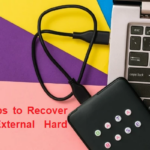Esports has become a global phenomenon, captivating millions of players and spectators around the world. If you’re an aspiring esports athlete looking to enter the competitive gaming scene, this guide is for you.
In this blog post, we will provide a comprehensive roadmap to help beginners get started in esports. From choosing the right game and learning its mechanics to practicing regularly, joining tournaments, and engaging with the esports community, these essential steps will set you on the path to success in the exciting world of competitive gaming.

Choose your game
The first step in starting your esports journey is selecting a game that resonates with you. Consider games with active competitive scenes and a supportive player base. Explore different genres and find a game that aligns with your interests and skill set.
Research popular esports titles, watch gameplay videos, and analyze the competitive landscape. Ultimately, choosing a game you are passionate about will drive your motivation and dedication to improve and excel in the esports scene.
Learn the game mechanics
To succeed in esports, you must have a deep understanding of the game mechanics. Study the intricacies of the game, including character abilities, maps, strategies, and terminology specific to the game. Familiarize yourself with gameplay mechanics such as movement, aiming, and decision-making.
Watch professional matches, analyze high-level gameplay, and seek out tutorials or educational content to enhance your understanding of the game. Mastery of the game mechanics is essential for making informed decisions and executing strategies effectively during matches.
Practice regularly
Consistent practice is key to improving your skills in esports. Dedicate regular time to playing the game, focusing on areas that need improvement. Develop your reflexes, aiming accuracy, game sense, and teamwork abilities. Consider setting goals for each practice session to track your progress.
Additionally, joining online communities or finding practice partners can provide valuable opportunities to engage in competitive matches and learn from experienced players. Remember, deliberate and purposeful practice is more effective than mindless repetition, so focus on quality practice rather than simply clocking in hours.
Join amateur tournaments
Participating in amateur tournaments and local events is a great way to gain experience and exposure in the esports scene. These tournaments provide opportunities to test your skills against other players, build your confidence, and learn from competitive environments.
Look for online platforms, local gaming centers, or community events that host amateur tournaments for your chosen game. Engaging in tournaments not only allows you to showcase your abilities but also helps you network with fellow gamers and potential teammates.
Analyze your gameplay
Recording and analyzing your gameplay is a crucial step in improving as an esports athlete. Capture and review your matches to identify strengths, weaknesses, and areas for improvement. Look for patterns in your decision-making, positioning, and communication.
Analyzing your gameplay enables you to make strategic adjustments, refine your playstyle, and learn from your mistakes. Additionally, consider seeking feedback from experienced players or coaches who can provide valuable insights and help you identify areas that need attention.
Build a team or join one
Many esports titles require teamwork and coordination. Building or joining a team can enhance your chances of success in competitive play. Seek out like-minded individuals who share your goals and aspirations in the game. Communication and teamwork skills are essential in a team-based setting, so make sure to foster a positive and collaborative environment.
Alternatively, look for existing teams that match your skill level and ambition. Joining a team provides opportunities for structured practice, collective improvement, and participation in team-based tournaments.
Invest in high-quality equipment
One important thing to consider is investing in high-quality equipment. Your gaming experience can only be as good as the hardware and software you’re using, so it’s crucial to make sure you have the best tools at your disposal. A gaming PC is an essential piece of equipment if you want to succeed in esports. But, with so many options available in the market, it can be overwhelming to make the right choice.
Fortunately, there are many gaming PCs for sale that you can choose from. Be sure to do your research and find a model that suits your needs and budget. Once you have the right equipment, you’ll be ready to take on the competition in the exciting world of esports.
Set realistic goals and seek improvement
Setting clear and realistic goals is essential for your esports journey. Define short-term and long-term objectives that align with your skill level and ambition. Whether it’s reaching a specific rank, joining a professional team, or participating in major tournaments, establish milestones to track your progress.
Strive for continuous improvement by seeking feedback, analyzing your performance, and embracing a growth mindset. Esports is a highly competitive field, and setbacks are part of the journey. Stay motivated, learn from defeats, and stay dedicated to your goals.
Conclusion
Getting started in esports can be an exhilarating and rewarding experience. By following these essential steps – choosing your game, mastering the mechanics, practicing regularly, joining tournaments, analyzing your gameplay, building or joining a team, engaging in online communities, and setting goals – you’ll be well-equipped to embark on your esports journey and work towards becoming a competitive esports athlete.
















